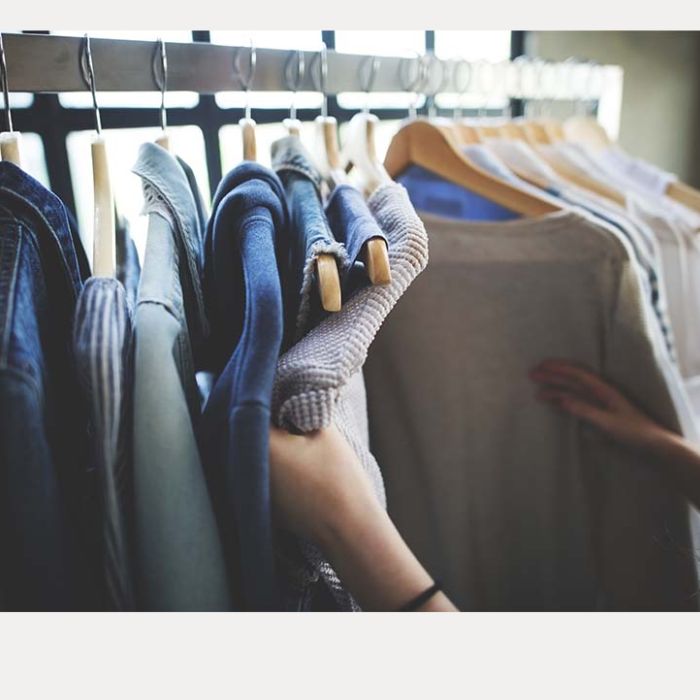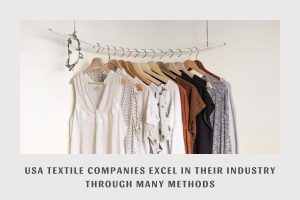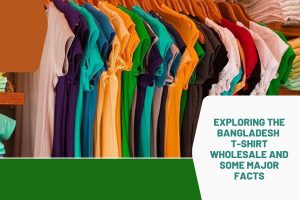Exploring the wholesale clothing vendor landscape
In the dynamic world of retail, finding the right wholesale clothing vendor can make all the difference. From maximizing profit margins to ensuring a consistent supply of fashionable products, the choice of a vendor is critical.
1. Some factors influence the price of wholesale clothing vendors
Several factors can influence the price of wholesale clothing vendors. Understanding these factors can help retailers make informed decisions and effectively manage their costs. Here are some key factors that can affect the pricing of wholesale clothing vendors:
- Quantity and volume: The quantity of clothing ordered and the volume of business conducted with the wholesale clothing vendor can significantly impact the price. Generally, larger orders and long-term partnerships can lead to better pricing and discounts.
- Manufacturing and production costs: The cost of manufacturing and producing clothing items can influence the wholesale clothing vendor’s price. Factors such as raw materials, labor costs, production techniques, and overhead expenses all play a role in determining the final price.
- Branding and designer labels: Clothing items from well-known brands or designer labels often command higher prices due to their reputation and perceived value. Retailers should consider the brand recognition and market demand associated with specific clothing items when assessing pricing.
- Quality and materials: The quality of materials used in clothing, such as fabric, embellishments, and craftsmanship, can affect the price. Higher-quality materials and attention to detail in the manufacturing process often result in higher wholesale costs.
- Fashion trends and seasonality: Fashion trends and seasonal demand can impact pricing. Clothing items that are on-trend and in high demand may have higher wholesale prices, especially during peak seasons. Retailers should consider market trends and seasonality when evaluating pricing from wholesale clothing vendors.
- Supplier relationships and negotiation: The nature of the relationship between the retailer and the wholesale clothing vendor can influence pricing. Establishing a strong partnership, maintaining good communication, and negotiating mutually beneficial terms can lead to more favorable pricing arrangements.
- Shipping and logistics: The cost of shipping and logistics, including transportation, customs duties, and storage, can add to the overall price of wholesale clothing. Retailers should consider these factors when assessing the total cost of sourcing from a particular wholesale clothing vendor.
- Market competition: The level of competition within the wholesale clothing market can affect pricing. Higher competition may lead to more competitive pricing among wholesale clothing vendors, while niche or exclusive suppliers may have higher prices due to their unique offerings.
It’s important for retailers to consider these factors and conduct thorough market research to assess the overall value and competitiveness of pricing from different wholesale clothing vendors. Finding the right balance between quality, price, and market demand is crucial for a successful partnership with a wholesale clothing vendor.

2. The benefits and drawbacks of partnering with a wholesale clothing vendor
Partnering with a wholesale clothing vendor can offer various benefits and drawbacks for retailers. It’s essential to evaluate these factors to make an informed decision. Here are some benefits and drawbacks to consider:
2.1. The benefits of partnering with a wholesale clothing vendor
Partnering with a wholesale clothing vendor can offer numerous advantages that empower retailers to thrive in the competitive fashion industry.
- Cost savings: Wholesale clothing vendors typically offer discounted prices when compared to retail prices. Retailers can take advantage of these lower prices to increase their profit margins or offer competitive pricing to customers.
- Wide product selection: Wholesale clothing vendors often have a diverse range of clothing options, styles, and sizes available. This enables retailers to cater to different customer preferences and offer a varied selection of products.
- Access to trendy and in-demand fashion: Wholesale clothing vendors stay updated with the latest fashion trends, ensuring that retailers have access to trendy and fashionable clothing items. This allows retailers to meet customer demands and stay relevant in the fast-paced fashion industry.
- Simplified sourcing and inventory management: Partnering with a wholesale clothing vendor simplifies the sourcing and inventory management process for retailers. Rather than dealing with multiple suppliers, retailers can consolidate their orders and streamline their inventory management, saving time and effort.
- Relationship building and support: Building a strong partnership with a wholesale clothing vendor can lead to long-term relationships and personalized support. Vendors can provide assistance with product recommendations, marketing materials, and resolving any issues that may arise.
With cost savings, access to diverse and trendy products, simplified sourcing, and the potential for long-term relationships, the benefits of partnering with a wholesale clothing vendor outweigh the potential drawbacks, making it a strategic choice for retailers seeking success and growth.
See more about:
Bangladesh t-shirt wholesale and some major facts
Wholesale clothing distributors in Atlanta Georgia with their great benefits
2.2. The drawbacks of partnering with a wholesale clothing vendor
While partnering with a wholesale clothing vendor presents various benefits, it is crucial for retailers to consider the potential drawbacks that come with such partnerships.
- Minimum order requirements: Many wholesale clothing vendors have minimum order requirements, which can pose a challenge for small or startup retailers. Meeting these minimums may require upfront investment and careful planning.
- Limited control over product availability: Retailers relying solely on wholesale clothing vendors have limited control over product availability. If a vendor faces supply chain disruptions or discontinues certain products, retailers may face challenges in restocking or finding suitable alternatives.
- Potential for competition: Wholesale clothing vendors often work with multiple retailers, which means that the same or similar products may be available to competitors. Retailers must differentiate themselves through branding, marketing, or unique product offerings to stand out in a competitive market.
- Quality control and returns: Ensuring consistent quality across all products can be a challenge when working with wholesale clothing vendors. Retailers need to have proper quality control measures in place and address any returns or product issues promptly to maintain customer satisfaction.
- Reliance on vendor performance: Retailers rely on wholesale clothing vendors to deliver products on time and meet quality expectations. Any delays, miscommunication, or shortcomings on the vendor’s part can impact the retailer’s business operations and customer satisfaction.
Despite the challenges of minimum order requirements, limited control over product availability, potential competition, quality control concerns, and reliance on vendor performance, retailers can mitigate these drawbacks through careful planning, effective communication, and proactive measures, making it possible to establish successful partnerships with wholesale clothing vendors.
3. Some types of products have the most profitable of wholesale clothing vendors
Certain types of products within the wholesale clothing industry tend to be more profitable for vendors. While profitability can vary depending on market trends and consumer demand, here are some types of products that often yield higher profit margins for wholesale clothing vendors:
- Niche or specialty apparel: Vendors specializing in niche or specialty clothing items, such as activewear, athleisure, plus-size clothing, sustainable fashion, or vintage-inspired pieces, can often command higher prices due to their unique offerings. These products cater to specific target markets and may have less competition, allowing wholesale clothing vendors to set higher profit margins.
- Branded or designer clothing: Wholesale clothing vendors that offer branded or designer clothing from well-known fashion labels often have higher profit margins. These products come with a certain level of brand recognition and perceived value, enabling vendors to charge premium prices.
- Premium fabrics and luxury materials: Clothing items made from premium fabrics or luxury materials, such as silk, cashmere, or fine leather, can be more profitable for wholesale clothing vendors. These materials come with a higher cost of production, allowing vendors to price their products at a premium and generate higher profit margins.
- Customizable or made-to-order clothing: wholesale clothing vendors that offer customizable or made-to-order clothing items can capitalize on the desire for personalized fashion. By allowing customers to select specific styles, colors, or customization options, vendors can justify higher prices and increase profitability.
- Seasonal and trending fashion: Wholesale clothing vendors that stay on top of seasonal and trending fashion can capitalize on the demand for in-demand styles. By offering clothing items that align with current fashion trends, vendors can attract more customers and potentially charge higher prices.
- Accessories and add-ons: While not limited to clothing, wholesale clothing vendors that offer accessories, such as handbags, shoes, jewelry, or hats, can benefit from higher profit margins. These items often have smaller production costs compared to clothing and can be priced at a premium due to their fashion appeal and versatility.
It’s important to note that profitability can also depend on factors such as production costs, market demand, and competition within specific product categories. Wholesale clothing vendors should carefully analyze market trends, target customer preferences, and cost structures to identify the types of products that offer the most potential for profitability in their specific business context.

4. Tip to find a reliable wholesale clothing vendor
Finding a reliable wholesale clothing vendor is crucial for the success of your retail business. Here are some tips to help you in your search:
- Conduct thorough research: Start by researching different wholesale clothing vendors. Look for reputable companies such as wholesale clothing vendors in China, Vietnam, or Bangladesh… with a strong track record, positive customer reviews, and a good reputation within the industry. Consider factors such as their years of experience, product range, and customer service.
- Request samples: Before committing to a wholesale clothing vendor, request samples of their products. This allows you to assess the quality, fabric, and craftsmanship of their clothing items. It’s important to ensure that the products meet your standards and align with your target market’s preferences.
- Check references and testimonials: Ask the wholesale clothing vendor for references or testimonials from their existing retail partners. Contact these retailers to gain insights into their experience working with the vendor. Inquire about product quality, delivery times, customer service, and overall satisfaction.
- Review their policies: Carefully review the vendor’s policies, including their minimum order requirements, return and exchange policies, shipping options, and payment terms. Ensure that these policies align with your business needs and preferences.
- Evaluate their ordering and fulfillment process: Look into the wholesale clothing vendor’s ordering process, lead times, and fulfillment capabilities. Ensure that their operations align with your business requirements, including the ability to meet deadlines and handle large order volumes if needed.
- Seek recommendations: Ask for recommendations from other retailers or industry professionals who have experience working with wholesale clothing vendors. Their insights and personal experiences can be valuable in identifying reliable vendors.
- Check industry directories and platforms: Utilize industry directories and online platforms that specialize in connecting retailers with wholesale clothing vendors. These platforms often provide reviews, ratings, and detailed vendor profiles, making it easier to find reliable and trustworthy vendors.
- Trust your instincts: Trust your instincts and intuition when evaluating a potential wholesale clothing vendor. If something feels off or if you have doubts about their reliability, it may be best to continue your search and explore other options.
By following these tips and conducting due diligence, you can increase your chances of finding a reliable wholesale clothing vendor that meets your business needs and contributes to your long-term success.
UK wholesale clothing vendors are also increasingly known for their fashion and style products. If you want to learn more about them, the following article will help you https://vinazgarment.com/the-top-uk-wholesale-clothing-vendors-you-need-to-know-about/





